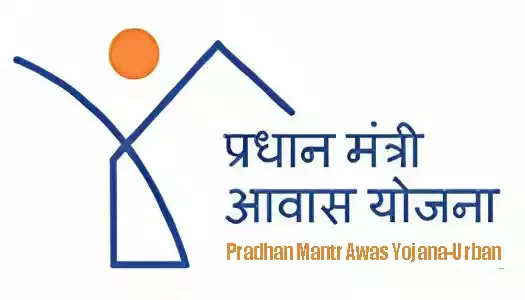Single parenthood, while a rewarding experience, often presents unique financial challenges. In India, where homeownership remains a cornerstone of aspirations, single parents may face hurdles in securing traditional housing loans due to income limitations and credit history concerns. And to address these challenges, you must be aware of the Government Loans for Single Parent in India.
Fortunately, the Government of India has introduced various schemes to provide financial assistance to single parents, specifically designed to cater to their specific needs and help them achieve their homeownership dreams. In this comprehensive guide, we’ll explore the various government loan options available for single parents in India, their eligibility criteria, and the application process.
Understanding Government Loan Eligibility for Single Parents
Government loans for single parent are designed to provide financial assistance to single mothers or fathers seeking to purchase a home or make home improvements. Eligibility criteria vary among different schemes, but generally encompass factors such as:
- Age: Applicants must typically be over 18 years of age.
- Income: Borrowers should have a steady and verifiable source of income sufficient to meet loan repayments.
- Creditworthiness: A good credit history is generally required, demonstrating a responsible repayment track record.
- Employment: Borrowers should have a stable employment history.
- Residential Status: Applicants must be Indian citizens and reside in India.
Types of Government Loans for Single Parent in India
The Government of India offers a range of single parent loan options, each with its own characteristics and benefits:
- Indira Gandhi Matritva Sahayog Yojana (IGMSY)
- Pradhan Mantri Awas Yojana (PMAY)
- National Housing Bank (NHB) Single Parent Loan
1. Indira Gandhi Matritva Sahayog Yojana (IGMSY)
A Conditional Cash Transfer Scheme for Pregnant and Lactating Mothers
The Indira Gandhi Matritva Sahayog Yojana (IGMSY) is a conditional cash transfer scheme for pregnant and lactating mothers in India. The scheme was launched in 2010 by the Ministry of Women and Child Development (WCD) to improve the health and nutrition of pregnant and lactating mothers.
Objective
The objective of the IGMSY is to promote institutional delivery, early registration of pregnancy, and antenatal care. The scheme also aims to improve the nutrition of pregnant and lactating mothers and their children.
Benefits
Pregnant and lactating mothers who are eligible for the IGMSY receive a cash benefit of ₹6,000 in three installments. The first installment of ₹3,000 is paid in the third trimester of pregnancy. The second and third installments of ₹1,500 each are paid after delivery, subject to the fulfillment of certain conditions.
Conditions
To receive the IGMSY cash benefit, pregnant and lactating mothers must fulfill the following conditions:
- They must register their pregnancy with a registered Anganwadi Center (AWC) or a health facility within four months of conception.
- They must receive at least four antenatal check-ups.
- They must register their child for birth within seven days of delivery.
- They must initiate breastfeeding within an hour of delivery and continue to breastfeed exclusively for six months.
Eligibility
Pregnant and lactating mothers who are residents of India and are 19 years of age or older are eligible for the IGMSY. Women who are employed in the organized sector are not eligible for the scheme.
Implementation
The IGMSY is implemented through the Integrated Child Development Services (ICDS) Scheme. The ICDS Scheme is a community-based program that provides a package of services to children under six years of age and their mothers.
Impact
The IGMSY has had a positive impact on the health and nutrition of pregnant and lactating mothers in India. The scheme has led to an increase in institutional deliveries, antenatal care, and breastfeeding. The scheme has also improved the nutritional status of pregnant and lactating mothers and their children.
Sum up on Indira Gandhi Matritva Sahayog Yojana (IGMSY)
The Indira Gandhi Matritva Sahayog Yojana is an important scheme that is improving the health and nutrition of pregnant and lactating mothers in India. The scheme is contributing to the achievement of the Millennium Development Goals (MDGs) related to maternal health and child mortality.
2. Pradhan Mantri Awas Yojana (PMAY)
A Beacon of Hope for Independent Living

Pradhan Mantri Awas Yojana (PMAY), a flagship initiative of the Government of India, aims to bridge the housing gap and provide affordable homes to all eligible citizens. Under the scheme’s ambit, single parents are recognized as a distinct category, ensuring they receive the necessary support to achieve their dream of homeownership.
Eligibility Criteria: Paving the Way for Homeownership
To be eligible for PMAY benefits, single parents must meet the following criteria:
- Marital Status: Must be a single parent, either widowed, divorced, or separated.
- Income Criteria: Must fall within the Economically Weaker Section (EWS), Low-Income Group (LIG), or Middle-Income Group (MIG) categories, as defined by the scheme guidelines.
- Ownership Status: Must not own a pucca house in their name in any part of India.
- Aadhaar Card: Must possess a valid Aadhaar Card for identification purposes.
Benefits that Uplift and Empower
Single parents who qualify for PMAY are entitled to a range of benefits, including:
- Subsidized Interest Rates: PMAY offers substantial interest subsidies on housing loans, making homeownership more financially accessible.
- Grant Assistance: Depending on their income category, single parents may receive a grant to cover a portion of the housing costs.
- Priority in Allocation: Single parents are accorded priority in the allocation of houses under PMAY, ensuring they receive timely assistance.
The Road to Homeownership: A Step-by-Step Guide
To avail PMAY benefits, single parents can follow these steps:
- Registration: Register themselves on the PMAY portal or through authorized agencies.
- Eligibility Verification: Submit necessary documents for income and ownership verification.
- House Selection: Choose a house that meets their preferences and requirements.
- Loan Application: Apply for a housing loan from a participating financial institution.
- Sanction and Disbursement: Upon loan approval, the sanctioned amount is disbursed to the builder or housing agency.
- Possession: Take possession of their new home, marking a new chapter of independence and stability.
PMAY: A Catalyst for Social Upliftment
PMAY’s impact on single parents extends beyond providing them with a physical home. It instills a sense of empowerment, enabling them to envision a brighter future for themselves and their children. A home under PMAY is a testament to their resilience and a symbol of hope for a life filled with dignity and security.
3. National Housing Bank (NHB) Single Parent Loan
Empowering Single Parents with Homeownership Opportunities
Single parents face a unique set of challenges, often struggling to balance work and childcare while also striving to provide a stable home environment for their children. Recognizing these challenges, the National Housing Bank (NHB) has introduced a special loan scheme specifically tailored to meet the needs of single parents.
Understanding the NHB Single Parent Loan Scheme
The NHB Single Parent Loan Scheme offers a range of benefits to single parents seeking to purchase their own homes. These benefits include:
- Concessional Interest Rates: Single parents are eligible for lower interest rates compared to standard housing loans, making homeownership more affordable.
- Extended Loan Tenure: The scheme allows for longer loan tenure, enabling single parents to comfortably repay the loan over a more extended period.
- Simplified Documentation: The documentation process is simplified to minimize the hassle for single parents.
Eligibility Criteria for Single Parent Loan
To be eligible for the NHB Single Parent Loan Scheme, applicants must meet the following criteria:
- Marital Status: Must be a single parent, either widowed, divorced, or separated.
- Age: Must be between 18 and 65 years of age.
- Income Criteria: Must have a regular source of income and fall within the specified income limits as defined by NHB.
- Employment: Must be employed in a permanent or semi-permanent position.
- Creditworthiness: Must have a good credit history.
Benefits that Extend Beyond Financial Assistance
The NHB Single Parent Loan Scheme extends beyond financial assistance, providing single parents with the opportunity to:
- Achieve Financial Stability: Owning a home can contribute to financial stability and reduce rental expenses.
- Create a Secure Environment: A home provides a safe and secure environment for children to grow and thrive.
- Build a Sense of Permanence: Homeownership instills a sense of belonging and permanence, fostering a sense of stability in single-parent families.
The Application Process for NHB Single Parent Loan
The application process for the NHB Single Parent Loan Scheme is straightforward and can be initiated through the following steps:
- Contact a Participating Bank: Approach a participating bank or financial institution that offers the NHB Single Parent Loan Scheme.
- Gather Documents: Collect the necessary documents, including proof of income, identity, marital status, and employment.
- Submit Loan Application: Complete the loan application form and submit it along with the required documents.
- Loan Approval and Disbursement: Upon loan approval, the sanctioned amount is disbursed to the applicant.
NHB Single Parent Loan: A Beacon of Hope for Single-Parent Families
The NHB Single Parent Loan Scheme serves as a beacon of hope for single-parent families, empowering them to achieve their dream of homeownership. By providing affordable housing solutions and simplifying the loan process, the scheme removes barriers and paves the way for single parents to establish a stable and secure foundation for their families.
Enhancing Your Chances of Government Loan Approval
To increase your chances of securing a government loan for single parents, consider these strategies:
- Gather Required Documents: Ensure you have all the necessary documentation, including income proof, employment details, property papers, and proof of single parenthood.
- Submit Application Forms: Carefully fill out the application forms for the desired loan scheme, providing accurate and complete information.
- Meet Eligibility Criteria: Ensure you meet the eligibility criteria for the specific loan scheme you’re applying for, including age, income, creditworthiness, and employment requirements.
- Seek Assistance: If you need help with the application process or have any questions, don’t hesitate to contact the concerned government agency or loan provider.
- Demonstrate Financial Stability: Provide evidence of a stable income source and a responsible financial history to enhance your chances of approval.
Additional Financial Support for Single Parents
Apart from government loans, single parents can access various financial support programs:
- Single Parent Support Scheme: This scheme offers financial assistance for education, healthcare, and skill development for single parents.
- Janani Suraksha Yojana (JSY): This scheme provides cash assistance to pregnant women for institutional delivery.
- National Creche Scheme: This scheme provides childcare support for working women, including single mothers, through creches and day-care centers.
- Beti Bachao Beti Padhao Scheme: This scheme aims to empower girl children and their families, offering various benefits, including financial assistance for education and healthcare.
- State-Specific Schemes: Various states offer their own single parent loan programs, with tailored benefits and eligibility requirements. For instance, the Maharashtra government’s Majhi Kanya Bhagyashree Scheme provides financial assistance to the parents of a girl child from her birth till she completes her higher education, including housing assistance.
End Note on Government loans for single parent
Government loans for single parent play a crucial role in empowering single parents to achieve their homeownership aspirations, providing them with stability and security for themselves and their children. By carefully evaluating loan options, understanding eligibility criteria, seeking additional financial support, and demonstrating financial stability, single parents can navigate the financial landscape and secure a brighter future for their families. Remember, financial independence is within your reach.
FAQs – Related to Government Loans for Single Parent
What is the best home loan for single mom in India?
National Housing Bank (NHB) Single Parent Loan Scheme is one of the best loan schemes available in India for the single parent. This scheme provides concessional interest rates, extended loan tenure, and simplified documentation specifically for single parents.
How can I get a loan if I am single parent?
To get a loan as a single parent, consider improving your credit score, reducing your debt-to-income ratio, seeking a cosigner, exploring government-backed loans, and comparing offers from various lenders.
What is National Housing Bank (NHB) Single Parent Loan Scheme?
In recognition of the unique challenges faced by single parents, the National Housing Bank (NHB) has introduced a specifically tailored loan scheme to facilitate homeownership for this demographic. This government-sponsored program offers a range of benefits, including concessional interest rates, extended loan tenure, and simplified documentation, making the path to homeownership more accessible and affordable for single parents.

